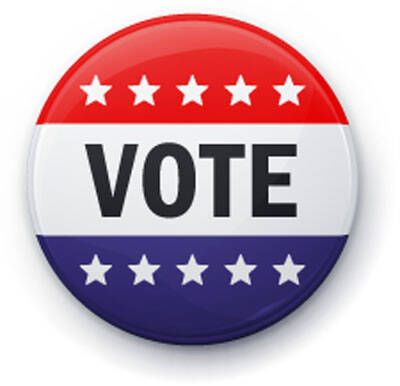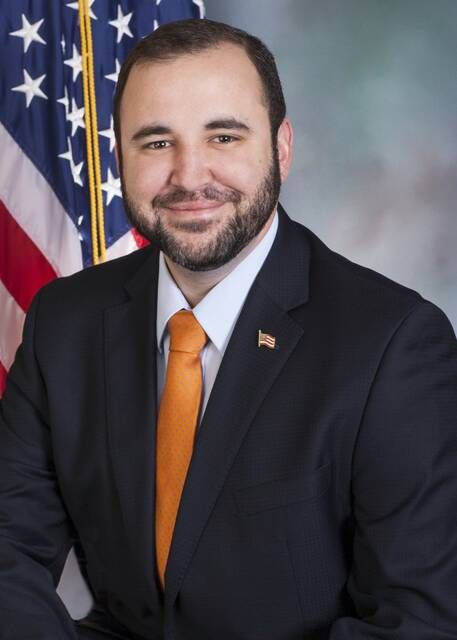Click here to subscribe today or Login.
WILKES-BARRE — The 120th Legislative District is between incumbent Republican Rep. Aaron Kaufer and Democrat challenger Fern Leard.
The candidates were asked to answer questions on key issues.
Jobs/Economy
Question: What would you do to bring better, family-sustaining jobs to the region? Be specific on what industries you would target and why they would be a good fit for NEPA.
Kaufer: Inflation is hurting working families all across our region. We need to stop the regulations that are driving up energy prices and ensure that families can afford to make ends meet.
The passage of the small business tax package and reduction of the corporate net income tax rate provide increased opportunity to help struggling businesses recover from the impacts of the pandemic and protect family-sustaining jobs.
I’m also proud of my work to help turn our natural resources in Northeastern Pennsylvania into opportunity. My legislation, Act 66, will use our natural gas to produce environmentally-friendly, carbon-reduced gasoline at less than a dollar per gallon.
This has led to the announcement of the largest investment in the history of Northeastern Pennsylvania and will bring thousands of family-sustaining jobs.
Leard: In terms of economic development, I am placing all my focus on the local economy and small business. I want to help locally owned businesses and assist in agricultural development (which will further lead to development as it opens the path for farmers markets and additional commerce).
Small, family-owned farms not only help with sustainable jobs that stay for generations in this area, but it is also good for the environment. As we focus on local construction, retail, restaurants, services, nonprofits, and as we feed the local economy, they give back to us as taxpayers.
The decades of focusing on attracting big corporations with tax breaks is ineffective and antiquated. In NEPA, our local economy is healthy, but the reason why local businesses are failing is because legislators are failing to support them.
Legislators are focusing on giving big corporate tax breaks to businesses coming in, taking advantage of the Delaware loophole, and not paying their fair share, like local businesses are. This exploits our residents and weakens our community. The reason why we refer to our local businesses as the backbone of our community is because small and mid-sized practices have an enormous positive impact.
During difficult economic times, they have proven their resilience. This investment will be extremely fruitful for better, family-sustaining jobs in our region.
Right-To-Life
Question: What is your position on abortion? — and please give details on what you would support of elected. Do you believe abortion should be criminalized? And should it be classified as “murder?”
Leard: Legislators are not medical doctors, we are not here to diagnose.
This decision is between a woman, her doctor, and her faith to decide what is best.
Therefore, if elected, I stand firm in believing my constituents can make their own decisions without government overreach.
Kaufer: In Pennsylvania, the Abortion Control Act is nuanced and prohibits abortions beyond 24 weeks unless the health of the mother is at risk.
While there are calls to either fully outlaw it or to allow abortions all the way up to full-term birth including partial birth abortions, the law in Pennsylvania should recognize the child’s viability outside the womb, considered to be at 20 weeks with current medical technology.
As a legislator, I have not supported an outright ban on abortion and believe in exceptions based on rape, incest, the health of the mother, and viability of the child.
Gridlock
Question: Would you be willing to talk across the aisle to try to effect meaningful legislation that benefits Pennsylvanians, or would you strictly vote party line?
Kaufer: I’m proud of my record in working with my colleagues on both sides of the aisle to solve complex problems, whether it’s welfare-to-work reform, reducing taxes, attracting more doctors to Pennsylvania, streamlining benefits for veterans leaving military service, or developing complex energy policy, among other topics.
I have always strived to work with others in our divided government to get things done and will vote based on what’s best for working families in Northeastern Pennsylvania, not special interests.
Leard: Of course, I believe it is vital to be able to work across the aisle. My district is comprised of all parties, and that is who I will represent; I will work incredibly hard for everyone’s best interest.
Without the ability to compromise, there are too many instabilities, from everything from the budget to policy. It saves taxpayer money and reduces inefficiencies when we work together.
It is important that we elect legislators that won’t just say they work across the aisle, but actually do.
Mail-in voting/drop boxes
Question: Are you for or against mail-in voting and drop-boxes?
Leard: I support the ease and accessibility of voting for everyone. Mail-in voting and drop-boxes have been used in other states for years without issues; these are just new to Pennsylvania.
I support taking security measures as necessary to ensure that the system is being used properly and safely.
Ultimately, it will be up to the individual municipalities to decide whether they want ballot boxes or not; the voice of the people needs to be heard. And I will support their decisions.
Kaufer: Our election laws need to be uniform across Pennsylvania and not applied differently based on the county where a voter lives.
Both the Governor’s office, through the Department of State, and the Supreme Court of Pennsylvania have overstepped their constitutional duties by ignoring state law and instead substituting their own policy preferences, creating a confusing set of election guidelines that are not applied uniformly across the state.
This is highlighted by the State offering private funding of elections to only Democrat-led areas of the Commonwealth. This is wrong. Our system needs to be secure with clear and consistent guidelines applied equally across the Commonwealth.
Property taxes
Question: What can be done to reduce property taxes?
Kaufer: Property taxes were created in a time that pre-dated income taxes and unfortunately don’t take into account an individual’s ability to pay.
Having passed the homestead exemption via constitutional referendum, we need to provide financial support to keep people in their homes by shifting taxes away from property taxes to other taxes, such as income and sales taxes, to fully fund the homestead exemption.
With soaring inflation, we need to be able to ensure that people can afford to stay in their homes.
Leard: There have been several promises regarding property taxes that have proven unfruitful.
First, the reason why we don’t want to link this to be based on income is because it would make tax revenue contingent on the employment level at any given time, which is unstable.
Also, the amount of oversight and resources needed to continuously track this method would be tremendous and costly. I want to reduce property taxes through the legalization of recreational marijuana, which many other states have successfully implemented and have been able to reduce property taxes.
The key to making this work is the wording itself when this is codified into law; we must set this revenue as “non-discretionary funds” so that it must be used for property taxes.
Per diems
Question: Do you or would you accept per diem payments?
Leard: No, I would not accept a per diem payment.
Kaufer: I do not accept per diems, and I’m proud to have been previously named as the “most frugal legislator.”
Reach Bill O’Boyle at 570-991-6118 or on Twitter @TLBillOBoyle.







